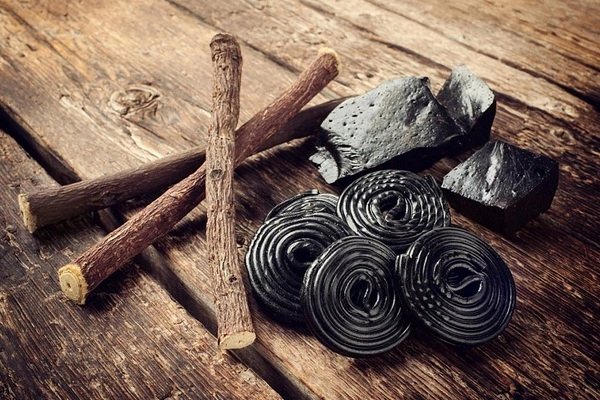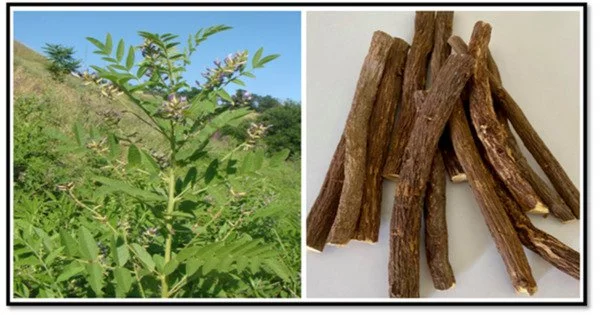The root of the licorice plant is used to make licorice. It’s commonly used to flavor and sweeten foods and drinks. Traditional Chinese medicine and Ayurvedic medicine, which is practiced in India, both use the herb.
A review of research into the molecular insights of glycyrrhizin, a licorice-derived substance, for cancer prevention or treatment suggests that more research could lead to specific agents for clinical use. According to researchers at the University of Illinois Chicago, licorice is more than just a candy that people either love or despise; it may also play a role in preventing or treating certain types of cancer.
Gnanasekar Munirathinam and his research team are studying substances derived from the licorice plant Glycyrrhiza glabra to determine if they could be used to prevent or stop the growth of prostate cancer. Munirathinam is an associate professor in the department of biomedical sciences at the College of Medicine Rockford.
Very few human clinical trials have been conducted. We hope that our work on prostate cancer cells advances science to the point where therapies can be developed to help prevent or even cure prostate and other types of cancer.
Gnanasekar Munirathinam
A research review into molecular insights of a licorice-derived substance called glycyrrhizin for preventing or treating cancer conducted by Dr. Munirathinam and student researchers suggests further research could lead to specific agents for clinical use.
The study, titled “Oncopreventive and oncotherapeutic potential of licorice triterpenoid compound glycyrrhizin and its derivatives: Molecular insights,” was recently published in the journal Pharmacological Research.
“Based on the research we’ve done and our own data, it appears that glycyrrhizin and its derivative glycyrrhetinic acid have a lot of potential as anti-inflammatory and anti-cancer agents,” Munirathinam said. “While more research is needed to determine exactly how these could be used to develop therapies, this appears to be an exciting area of cancer research.”

Should everyone go out and eat a bunch of licorice? Probably not, because it may affect blood pressure, interact with certain medications, and cause serious adverse effects, including death, when used excessively. An occasional sweet treat of licorice candy or tea may be better options until more studies can show how to best harness the plant’s benefits.
“Very few human clinical trials have been conducted,” Munirathinam explained. “We hope that our work on prostate cancer cells advances science to the point where therapies can be developed to help prevent or even cure prostate and other types of cancer.”
Black licorice is perfectly safe to consume in small amounts. The journal case involved excessive consumption with an otherwise very limited diet. It is important to understand, however, that black licorice is more than just candy. It contains glycyrrhizic acid, which can cause swelling and high blood pressure while also depleting potassium and other electrolytes, potentially leading to cardiac arrhythmia or arrest. Other foods, such as jelly beans and beverages, are flavored with glycyrrhizic acid.
College of Medicine Rockford students Rifika Jain, Mohamed Ali Hussein, Preksha Shahagadkar, Shannon Pierce and Chad Martens are co-authors of the review, which was partly supported by the National Institutes of Health (R0CA227218) and Brovember Inc.
















